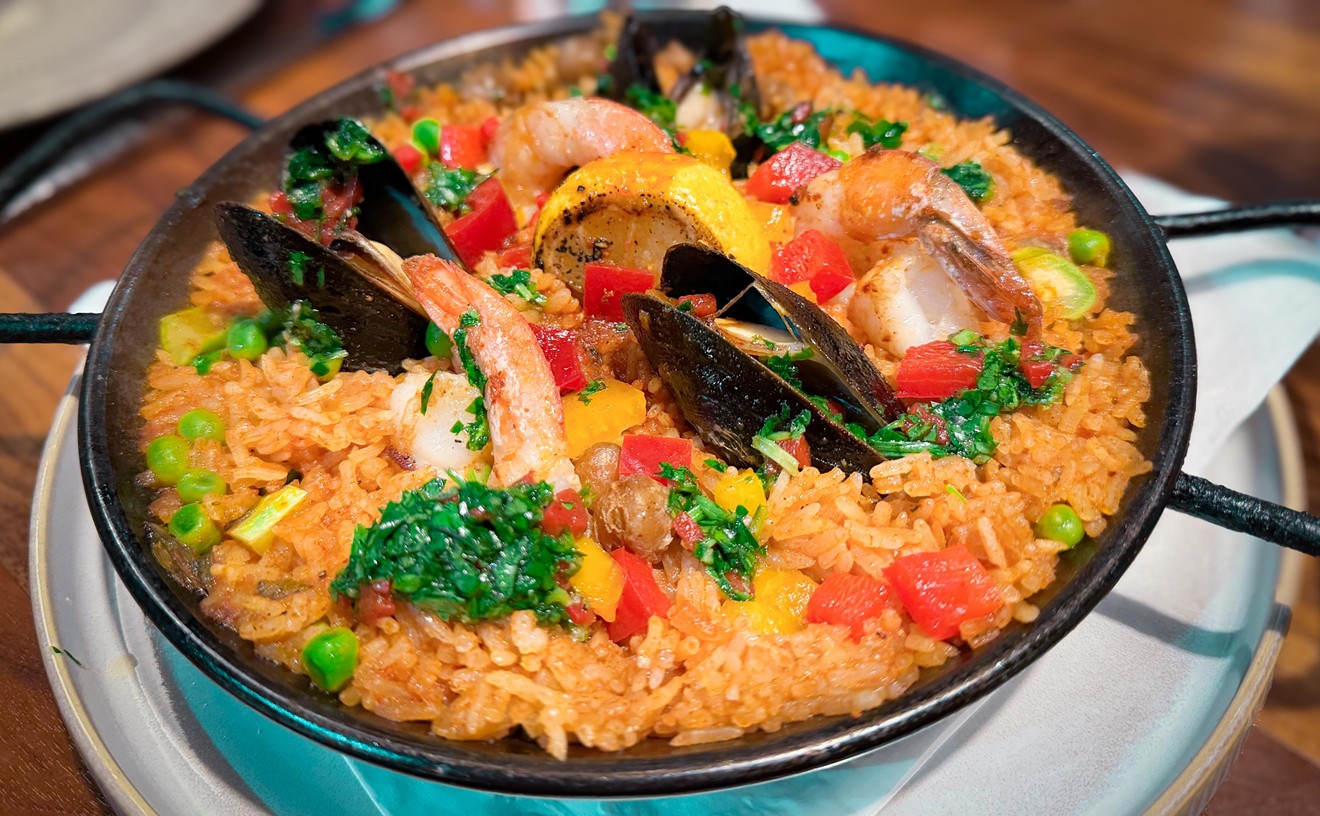When news got out yesterday that MillerCoors' craft division had purchased a majority interest in Granbury brewery Revolver, opinions on social media were varied — and loud.
"I think this is great! People do something cool and get paid."
"Good for the owners of Revolver — hope they cashed in. But disappointed to think how MillerCoors will ruin a good beer."
"I'm skeptical but I'll support them as long as the beer doesn't change. If and when it does, I'll be sad but I'll be out."
"No more Blood & Honey for me. Down with the man!!!"
Opinions tend to fall in one of two fields of thought: 1. Good for them! Local beer hits it big. and 2. Bummer. Too bad I can't ever drink Revolver again.
Anyone wondering why a new owner may render a beer undrinkable probably hasn't hung around a lot of craft beer bars in the last, oh, 20 years or so. Ever since big beer starting seeing major profit losses from craft beer, the industry has been struggling to curb the loss of market share. As early as the late '90s, AB InBev and MillerCoors started buying up small (and not-so-small) craft breweries left and right. Goose Island was the biggest earth-shaking sale in 2011, and if you've got a subscription to any streaming service, you've likely seen a product of that buyout: intense and unrelenting Goose Island advertising, paid for by daddy AB InBev. The Chicago brewery has seen a spate of recalls in recent months; whether or not these quality issues are AB InBev's fault is debatable.
Now, in a move that's big news for the Texas beer economy (one of the country's biggest), MillerCoors bought Revolver, and we're hearing the same string of everything's-gonna-be-fine platitudes: Revolver will continue to operate as its own business, nothing will change, etc. But, of course, we know that's not true. At the least, the brewery will see increased distribution and marketing, which leads to increased production, which leads to inevitable change, not all of which is good or bad.
But for serious craft beer enthusiasts, particularly ones who pride themselves on fervent support of local beer, the sale causes an ethical dilemma. That dilemma is rooted in a single question: If you believe in the integrity of craft beer — which means knowing that your money supports independent brewers — is it ethical to continue drinking "crafty" beer?
The craft vs. crafty debate is not new. "Crafty" is used to denote a mass-produced beer that was marketed to look like a craft beer — think Blue Moon and Shock Top. The issue came to a head in 2012, when the Brewers Association released a statement reiterating that "An American craft brewer is defined as small and independent." Fast forward a few years and "crafty" has also become a descriptor for beers produced by a craft brewery that was bought out by big beer. Craft beer purists believe that buying beer from a brewery like Goose Island — that is, a brewery now owned by AB InBev or MillerCoors — means giving money over to a multinational corporation that intentionally tries to cut down the craft industry. Has big beer really tried to shut down craft beer? That's less of a question and more of a foregone conclusion. The monopolistic three-tiered distributor system in the U.S. made it notoriously difficult for craft beers in the early years, and some would argue that little has changed.
For some people, a major part of craft beer's appeal is that drinkers feel good about where their money is going: to hard-working, independent brewers who may pay better, be more environmentally conscious and offer better employee quality of life than major beer operations. When your favorite brewery is bought out by the big bad wolf, then what? Many of those same employees may still work at that brewery, but some of that money is also headed straight in the wolf's pocket.
Then again, some beer drinkers couldn't care less. They buy the beer they like from whatever retailer they want. But this kind of existential debate is a fundamental component to the craft beer world. Craft beer has always been the underdog, the everyman, the hardworking hero flying in the face of mass-produced convention. What happens when David becomes an employee of Goliath, and makes a fat wad of cash in the process?
For some, Revolver has lost a spot in their fridge for good, regardless of what happens next. Others will scrutinize future beer hauls, looking for subtle differences. Others still will keep ordering pints of Blood & Honey because they damn well like it. And as Revolver takes advantage of MillerCoors seemingly endless resources, a new batch of Revolver Bock fans are poised to enter the fray.
One thing is certain: Considering that Revolver is MillerCoors' third brewery purchase in recent weeks, we could see more Texas breweries headed down a similar road. Texas beer's reputation is not unlike that of Texas itself: bold, independent, stubborn. Then again, Texas has never shied away from a little unabashed capitalism, either. Drinkers will just have to decide for themselves if the sale of their favorite local brewery leaves a bad taste in their mouth.
[
{
"name": "Air - MediumRectangle - Inline Content - Mobile Display Size",
"component": "18855504",
"insertPoint": "2",
"requiredCountToDisplay": "2"
},{
"name": "Editor Picks",
"component": "17105533",
"insertPoint": "4",
"requiredCountToDisplay": "1"
},{
"name": "Inline Links",
"component": "18349797",
"insertPoint": "8th",
"startingPoint": 8,
"requiredCountToDisplay": "7",
"maxInsertions": 25
},{
"name": "Air - MediumRectangle - Combo - Inline Content",
"component": "17105532",
"insertPoint": "8th",
"startingPoint": 8,
"requiredCountToDisplay": "7",
"maxInsertions": 25
},{
"name": "Inline Links",
"component": "18349797",
"insertPoint": "8th",
"startingPoint": 12,
"requiredCountToDisplay": "11",
"maxInsertions": 25
},{
"name": "Air - Leaderboard Tower - Combo - Inline Content",
"component": "17105535",
"insertPoint": "8th",
"startingPoint": 12,
"requiredCountToDisplay": "11",
"maxInsertions": 25
}
]











